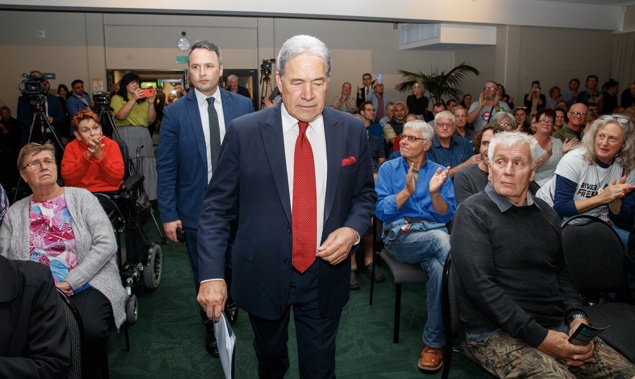
Legal and political voices have weighed in on whether the Government should apologise when cases against members of the public are dismissed, claiming the example of the New Zealand First foundation had no malicious intent behind it.
The SFO took the New Zealand First foundation to the Court of Appeal over two men — who have name suppression — who handled the party's donations. The case was dismissed.
Peters wants an apology from the SFO but his calls for admission of wrongdoing have found little sympathy. Talking to Newstalk ZB this morning, Labour MP Ginny Andersen was dismissive of Peters' desire to get an apology from the state.
"I think there's been a long process gone through and that SFO case has had a lot of attention in the media - I think Winston is always looking for an apology," she told the Mike Hosking Breakfast.
"But you've got to respect the outcome of that law and the outcome of that court case, I think if anyone who's ever offended Winston got an apology, there would be a very long queue."
Police minister Mark Mitchell, who was interviewed alongside Andersen, called the question whether the state should apologise "very broad".
"[It's] why we have a court system - so that those cases can be put through our court system and can be tested. We have a world-class system that is trusted, and we need to continue to put our trust in that system."

Constitutional law expert Andrew Geddis told Newstalk ZB that when an individual or group faces state prosecution, there is an unfair legal advantage for the Government - but provisions are made to level the playing field.
"When the state comes after you there is an imbalance, which is why we have publicly funded lawyers who can represent you," said Geddis.
"The question here is one of legal interpretation of an offence, and the only way to answer it is to get in front of court and get a judge to conclude there was no maliciousness here."
Geddis said this was the case during the New Zealand First foundation trial.
"The charges weren't brought to try to attack the party but because there was genuine uncertainty if the law had been broken. How else do you resolve it except by taking it to court?"
According to Geddis, Peters was not owed an apology and believed the SFO needed to act against the foundation or risk damaging the very foundations of the country's political system.
He said his belief was if the NZ First foundation was still allowed to operate the way it had been, New Zealand's system of funding political parties would have been ruined.
"We've solved the problem in that we can now charge people for trying to run this sort of thing again; if Winston Peters' foundation was all lawful, the question to ask would be 'why didn't you re-set it up?' And the answer would be because the laws changed," he told Hosking.
However, Geddis said he still believed there was an ongoing issue around how political parties receive large donation sums.
"[The parties are] always looking for ways to get those donations in without them appearing in the light. And that's the big problem."
Take your Radio, Podcasts and Music with you









